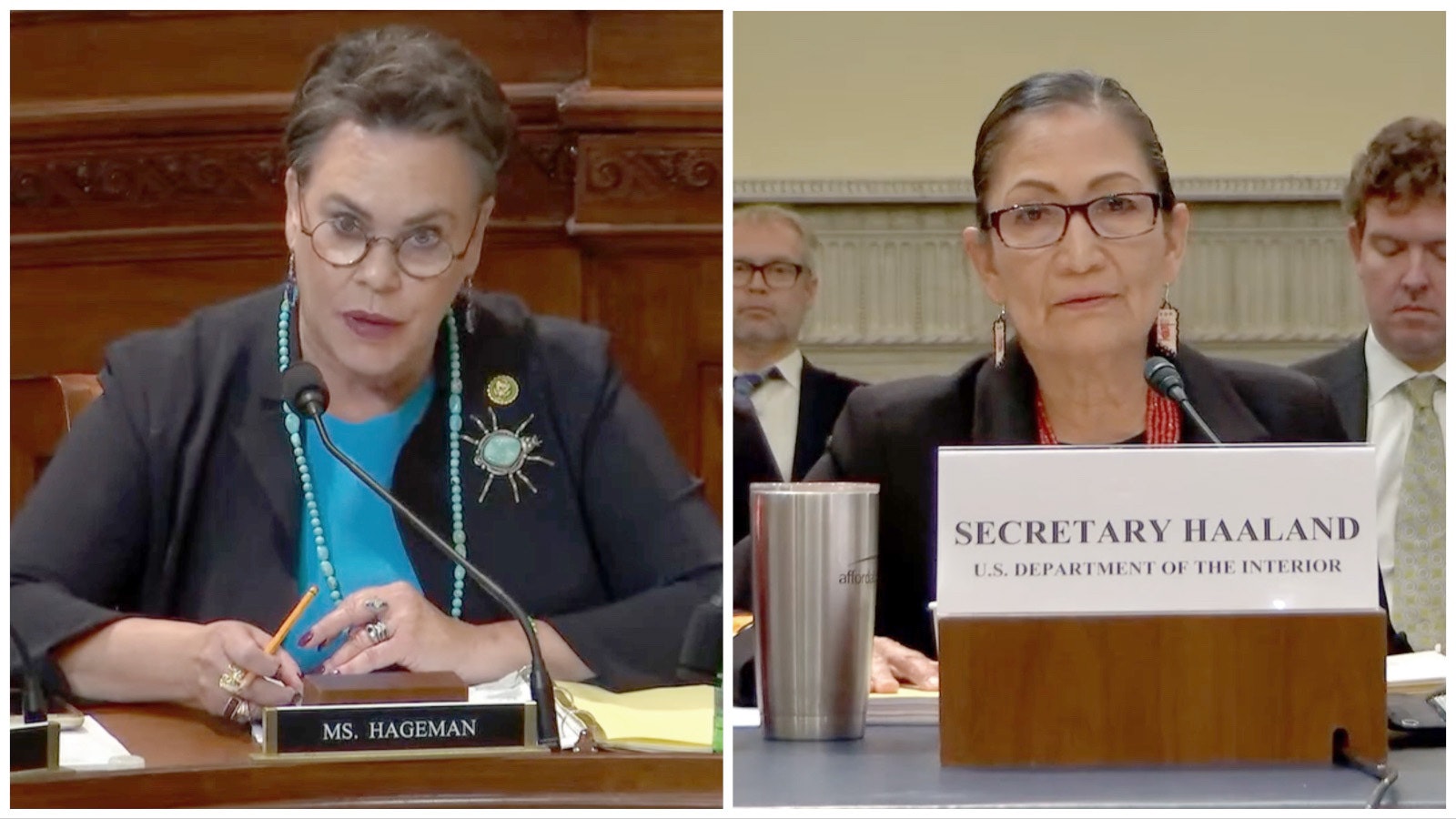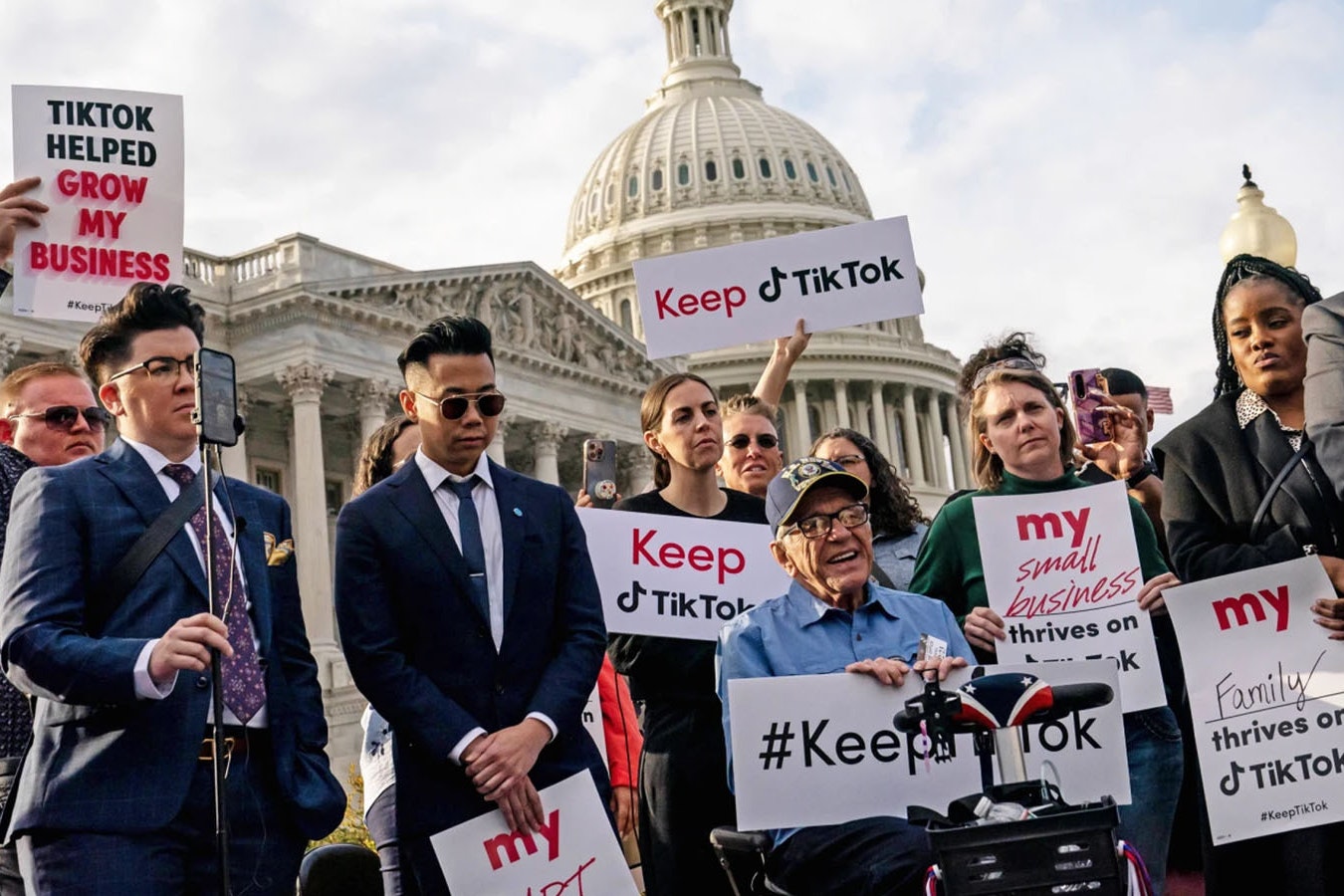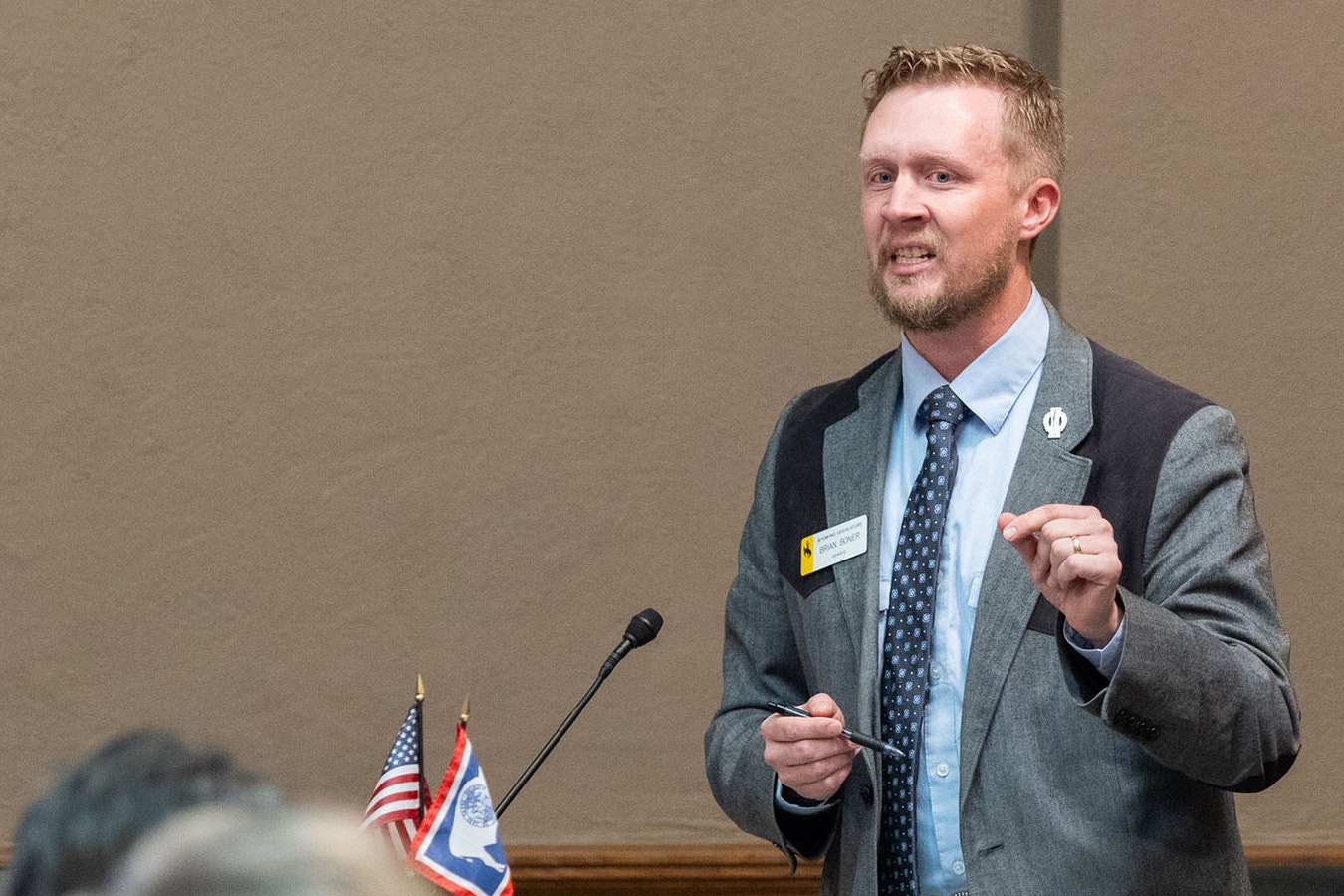The U.S. Department of the Interior oversees a lot of decisions that impact energy policy, including the issuing of coal, oil and gas leasing on public lands.
Even though these decisions can have an impact on the cost of energy in America, Secretary of the Interior Deb Haaland said during testimony before the Republican House Committee on Natural Resources that she is unfamiliar with the term “energy poverty.”
Self-Explanatory
During the testimony, Wyoming Rep. Harriet Hageman, R-Wyoming, asked Haaland if she thought energy poverty “is a good thing.”
“I don’t know the term, ma’am,” Haaland replied at the April 19 hearing.
“You’ve never heard of the phrase ‘energy poverty?’” Hageman asked.
Haaland restated that she had not heard the term, and Hageman responded that the term is “probably pretty self-explanatory, though, don’t you think?”
Haaland then explained that the goal of the Biden administration’s clean energy push is to make energy more affordable.
Hageman continued to press Haaland on whether she thinks energy poverty is desirable, and Haaland said that, as a single mother, she’d been in a situation where she had to choose between paying rent, her student loans or her gas bill. She then said that the administration is working to make energy efficient and more affordable.
“That’s why we’re moving forward on clean energy,” Haaland said.
“If that’s the case,” Hageman pushed, “coal is an affordable energy, isn’t it? It has been for decades.”
Haaland would not answer if coal, oil or gas were part of her department’s goal to make energy affordable.
Offshoring Production
Hageman told Cowboy State Daily in an email Tuesday that, despite President Joe Biden wanting to see fossil fuels go away, that won’t be happening.
So, the question, Hageman said, is whether those will be produced domestically or by foreign countries.
“We all know it should be us, but for Biden and Haaland the answer lies not in using our own abundant energy resources and controlling our own destiny, but in offshoring energy and mineral production to third world, dictatorial countries,” Hageman said.
The administration’s policies, Hageman said, are designed to increase the cost of the “building blocks of a civilized society,” which includes food, housing, fertilizer, concrete, transportation and manufacturing.
“Their preferred energy policy empowers and enriches dictators, despots and tyrants,” she said. “It destroys our access to, and use of, safe, clean, reliable energy found right here in America.”
European Poverty
Over the past decade, European countries, such as the United Kingdom and Germany, have pursued a much more accelerated clean energy policy similar to what the Biden administration has been pursuing since he took office.
Energy poverty has become a problem in both countries over the past year.
Germany and the U.K. banned oil and gas drilling using hydraulic fracturing technology, which left the nations with no domestic natural gas supplies when Russia invaded Ukraine in February 2022.
They also have pursued a much faster buildout of wind resources than the U.S.
In 2021, according to BP Statistical Review of World Energy, the U.K. got 10.55% of its primary energy consumed from wind and solar. Primary includes all energy used, including electricity, transportation and industry.
In 2021, Germany got 12.83% of its primary energy from wind and solar. The United States got 5.6% of its primary energy from wind and solar in 2021.
Reuters reported in January that German industry was paying 40% more this year than it was in 2021, and some German heavy industry has had to shut down as a result of rising energy costs.
The BBC reported earlier this month that an 87-year-old woman in a town north of Manchester, England, died of hypothermia because she was too worried about high energy bills to turn up her heat.
Federal Leases
While the U.S. hasn’t banned hydraulic fracturing, Biden has issued the fewest oil and gas leases of any president since World War II. With so much production happening on federal lands, especially in Wyoming, that has limited drilling opportunities for American producers.
The Obama administration declared a moratorium in 2016 on coal mining leases on federal lands. A federal judge upheld the moratorium in August, which left Biden and Haaland with the responsibility to examine the environmental impact of coal leasing on federal land.
At the beginning of her questioning of Haaland, Hageman asked if the department had approved any leases for coal under Haaland’s leadership.
Haaland said she wasn’t certain but would have someone from the Bureau of Land Management provide those answers for the congresswoman. Haaland said that since the federal district court judge had reinstated the moratorium, the bureau would initiate an environmental analysis “shortly.”
All Of The Above
During her testimony, Haaland said she supports using different energy sources to keep energy more affordable.
Hageman asked if that includes coal, oil, and natural gas.
“Congresswoman, we are in a transition to a clean energy future, and I believe very strongly that we will get there and energy will be more affordable,” Haaland replied.
In an interview, Hageman said that, to Halaand and the Biden administration, an “all-of-the-above” energy strategy means Chinese-made solar panels and wind turbines made of steel.
These products, Hageman said, cannot be produced without coal, and electric vehicles have relied on minerals, some of which are mined by children in countries such as the Congo in Africa.
“It is a perfectly reasonable assumption that this administration is purposely inflicting energy poverty on the American people through their war on coal, gas and mined minerals,” she said. “Democrats are selling a fairy tale in which we are going to be ‘carbon free’ by 2030, or perhaps it is 2035, or maybe 2050.”
Unrealistic Goals
Hageman added that these target dates for carbon-free energy are past their terms of office.
“How very convenient,” she said.
Hageman said that the primary goal of the nation’s energy policy should be energy independence.
“Our citizens should not have to suffer financially because this administration wants to pursue unrealistic emissions goals – especially when American energy is already ‘clean energy’ and so many other countries are far behind our standards,” Hageman said.





